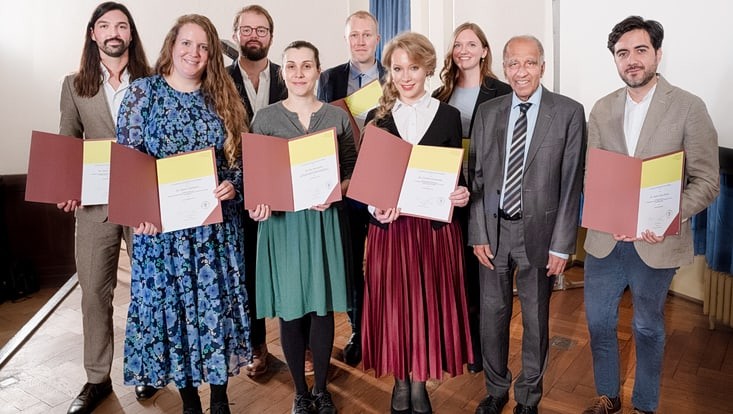and Society (CLICCS)
Researchers from Universität Hamburg advise the Federal GovernmentHow climate-friendly is the coronavirus stimulus package?
14 July 2020, by Christina Krätzig

Photo: UHH/ S. Engels
The German Federal Government’s recently approved stimulus package includes a bonus for families with children and a temporary VAT reduction, as well as billions of euros in aid for businesses. The Climate Protection Science Platform – a body that helps the government implement its climate targets policy – has investigated whether these measures support the country’s climate goals. The steering committee’s ten members include two researchers from Universität Hamburg: Prof. Timo Busch (Social Economics) and Prof. Anita Engels (Social Sciences).
Ms. Engels, what is the aim of the government’s stimulus package?
The stimulus package is intended to mitigate the economic effects of the coronavirus pandemic and bring about an upturn in the economy.
Why has the Climate Protection Science Platform issued a statement on it?
This is the first public statement released by the Science Platform, which was formed last year. The platform’s task is to support and assess the government’s climate policy. Since the stimulus package has made unprecedented levels of public funding available, our goal was to evaluate the extent to which climate-protection aspects are taken into account. Accordingly, the platform’s members decided to develop a set of criteria based on the current stimulus program, which can be used in future evaluations of climate protection policy.
In the report you comment on various aspects, such as government instruments like emissions trading and expanding climate-friendlier infrastructures, as well as loans and state funding. When it comes to the latter, how can they be made climate friendly?
Government expenditures should be aligned with the goals of Germany’s climate protection policy, since the current climate protection goal of cutting all emissions by at least half by 2030 creates a binding legal obligation for the Federal Government. No investments that stand in the way of this goal – like ones that would prolong our dependence on coal-generated electricity, or on internal-combustion engines – should be supported. Development programs should, above all, be oriented toward climate-friendlier business models, for example in agriculture or the hotel and catering industry.
What about the social factor? In your statement you claim that a climate-oriented stimulus package can only be successful if the public considers it to be fair. How can this be achieved?
The Federal Government should try to ensure that the package is accessible to affected groups in the population, and to provide opportunities to actively support climate protection measures. Social hardships need to be avoided and there have to be opportunities for municipalities, civil society organizations and founders to participate. These could include the cooperatively financed expansion of renewable energies, greenhouse-gas-neutral concepts for tourism and leisure activities, or the development of climate-friendly mobility services, for example.
What happens next? You’ve just submitted your statement to the government – and now?
The statement is just one element in the close and regular communications between the Science Platform’s steering committee and various ministries, particularly those concerning the environment and research. The Science Platform’s experts are included in interministerial coordination processes, so what we’re looking at is a continuous process, in which our assessments will regularly be taken into consideration in political decision-making.
The Climate Protection Science Platform
As an independent advisory body, the Climate Protection Science Platform supports the Federal Government in implementing and further developing Germany’s climate targets. With its Climate Action Plan 2050, the Federal Government has committed to reducing greenhouse gases. The importance of research and innovation is anchored in the plan and a broad, science-based support process has been agreed upon.
The platform is guided by the steering committee, which is composed of up to ten members appointed by the Federal Ministry for the Environment, Nature Conservation and Nuclear Safety (BMU) and the Federal Ministry of Education and Research (BMBF). Appointed members remain in office for a minimum of three years.
The current position (pdf for download) of the Climate Protection Science Platform on the corona crisis can be found here (only in German).


